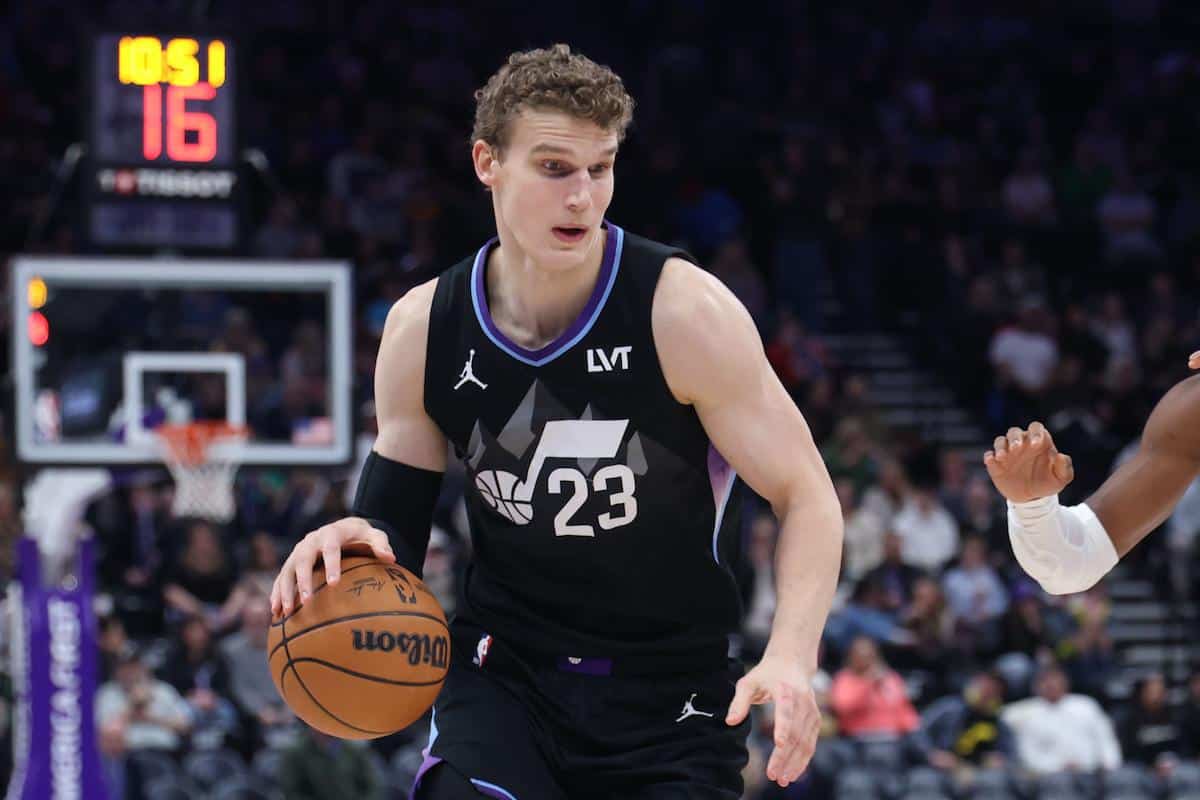Grant Williams was the final cog in the Boston Celtics’ machine that helped everything tick all year long. There were certainly some ups and downs, especially in the playoffs, but when looking at Boston’s 2021-22 season as a whole, Williams was one of the most consistent figures on the squad.
Last year, Williams was virtually unplayable. He was too big to play the four and keep up with quicker forwards, but he was squeezed out of Boston’s big man rotation by Daniel Theis (to start the year), Tristan Thompson, Robert Williams, and even Luke Kornet at times. After spending his entire rookie season as a small-ball center (and thriving in that role), Williams was forced to pivot.
Heading into the season, it was clear that Williams knew what the Celtics would need from him. He revealed that he had spent the offseason trimming down his weight in order to effectively play the four.
“My rookie year, I had to gain weight to play the 5,” Williams explained at Media Day. “Then I never lost that weight. Now, I’ve lost 12-15 pounds. I’ve got another 8-10 to lose to be able to play the 4 more. I want to be like a ‘Baby Al’.”
With Al Horford and Robert Williams manning the frontcourt, Williams assumed a bench role. His presence was felt immediately thanks to his three-point shooting, which will go down as the story of the season for him. After starting his career shooting 0-for-25 from deep, the Tennessee alum improved drastically by the time this past year rolled around.
Though it ended up being ignored due to his shotty defense, Williams’ three-point percentage jumped up to 37.2% during his sophomore campaign. And he only built on that, as he ended this season shooting 41.1% from distance (which ranked 16th in the NBA) on a career-high 3.4 attempts per game. He quickly became known for his corner threes, and by the end of the year, his three-point percentage from the corner was 46.9%.
But Williams’ growth didn’t stop there. As teams began to learn how big of a threat he was from distance, Williams was forced to learn on the job. This led to a brief period of the year where Williams was left stranded in the corner at times, but he quickly became effective at driving closeouts.
That being said, Williams still has a ton of room to grow in that regard. He’s yet to perfect his closeouts and needs to improve his decision-making in those spots. Making the right reads in regard to knowing when to drive hard to the rim and when to dump off a pass will be a crucial next step in his development as a player.
Meanwhile, Williams’ defense was just as important as his three-point shooting, if not more. The weight he lost allowed him to shift down and guard wings, which was exactly what Boston needed from him. In their switch-heavy defense, having defenders with versatility was crucial, and Williams provided them with that.
He was even able to switch onto guards at times, although that’s another area of the game he needs to continue to work on. He can survive on an island when he needs to, but there are still too many times where he gets blown by, leaving Boston to scramble in rotation.
Despite all this, Williams came into his own in the postseason. More specifically, he dominated in Boston’s second-round series against the Milwaukee Bucks. That was the series where most Celtics fans fell in love with him.
Against Milwaukee, Williams averaged 10.9 points, 4.6 rebounds, and 0.9 assists on 36.4% shooting from the field and 37.8% from distance. Williams had two 20-point games against the Bucks – one in Game 2 and one in Game 7.
He scored 27 points in the clincher, leading the game in scoring and setting a career-high. In addition, Williams set a record for the most threes attempted in a Game 7 of the NBA Playoffs, jacking up 18 of them. That number is also the second-most threes ever attempted in a playoff game (behind only Russell Westbrook). Williams drained seven of his 18 attempts and came up big when Boston needed him the most.
Williams’ defense on Giannis Antetokounmpo was also a key part of the series. Although Al Horford took on the assignment more and more as the series went on, Williams’ Game 2 defense against the Greek Freak was stupendous. He had the entire NBA world talking, and for a brief moment in time, he was truly the Giannis Stopper.
But above all, Williams was the glue. He was the player who always played one-on-one drills with Jayson and Deuce Tatum before each game, the prankster on April Fool’s Day who faked a fight with Ime Udoka, and the only player to give himself a nickname. Williams was a constant source of joy in a season filled with uncertainty.
He was always the one keeping spirits high, even when the team was below .500 before the All-Star break. Fans just didn’t notice it because they were too focused on the team being subpar.
There are still plenty of things for Williams to improve on moving forward, but this season showed that he is a crucial part of Boston’s lineup. Both on and off the court.
Unfortunately, Deuce still didn’t deem him worthy of post-game high-fives…






